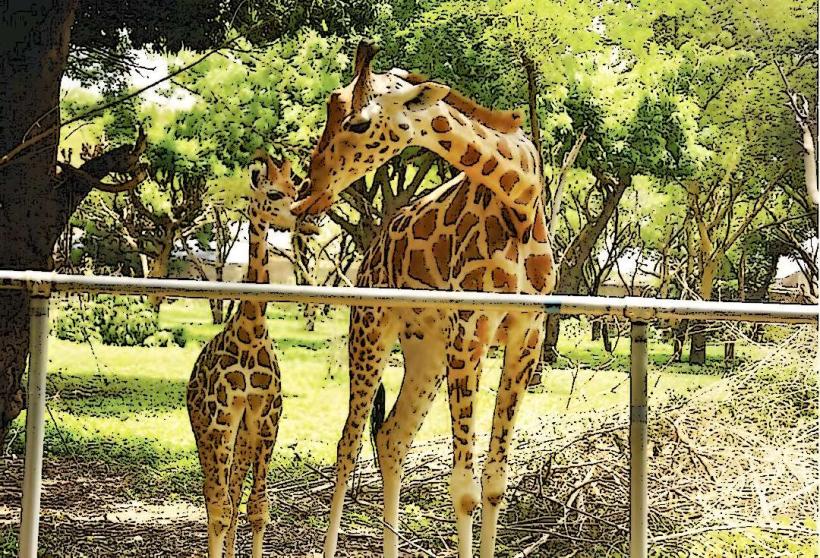Information
Landmark: Hadejia-Nguru WetlandsCity: Jigawa
Country: Nigeria
Continent: Africa
Hadejia-Nguru Wetlands, Jigawa, Nigeria, Africa
The Hadejia-Nguru Wetlands are an ecologically significant area located in northeastern Nigeria, primarily within Yobe State. They are an important part of the Lake Chad Basin and contribute to the ecosystem and livelihoods of the region. The wetlands cover a complex network of channels formed by the confluence of the Hadejia and Jama'are rivers, with the wetlands feeding into the Yobe River, which ultimately drains into Lake Chad.
Geography and Hydrology
The wetlands were historically vast, covering up to 3,000 km². However, their size has diminished significantly due to reduced rainfall, construction of dams, and climate change. In 1983, the flooded area dropped to less than 900 km², and during drought years, this figure fell to under 300 km².
The wetlands play a vital role in the local hydrological cycle, providing floodplain areas for seasonal agriculture, water resources for livestock, and habitats for a variety of species.
Biodiversity and Conservation
The Hadejia-Nguru Wetlands have been designated as a Ramsar Wetland of International Importance. The wetlands are known for their rich biodiversity and support a variety of species, especially waterfowl. Key facts include:
Bird Species: Between 200,000 and 325,000 waterbirds frequent the wetlands, with over 377 bird species, including the near-threatened pallid harrier and great snipe.
The area is part of the Chad Basin National Park, which encompasses approximately 938 km² of the Bade-Nguru Wetlands sector.
Aquatic and terrestrial species thrive in this environment, supporting the livelihoods of local communities through activities such as fishing and farming.
Human Impact and Livelihoods
Around 1.5 million people live in and around the Hadejia-Nguru Wetlands, and they rely heavily on the resources of the wetlands for their livelihoods. The primary activities include:
Agriculture: Local communities engage in wet-season rice farming, flood-recession agriculture, and dry-season irrigation. Crops grown in the area include rice, peppers, and wheat.
Fishing: Fishing is a major source of food and income, with numerous local fish species being harvested.
Livestock Grazing: The wetlands provide grazing land for Fulani cattle, which are essential to the pastoralist communities.
Non-Timber Forest Products: The wetlands provide resources such as fuelwood, leaves for making mats and ropes, and medicinal plants.
Environmental Challenges
The wetlands face several environmental challenges that have threatened their health and sustainability:
Reduced Flooding: Due to the construction of upstream dams like Tiga and Challawa Gorge, the wetlands no longer experience the same seasonal flooding they once did. This has reduced the flooded area by about 350 km².
Invasive Species: The spread of invasive plant species like Typha grass has altered the landscape by blocking water channels and affecting water flow and biodiversity.
Agricultural and Grazing Conflicts: As the population grows and agricultural activities expand, conflicts arise between farmers and herders over land use, especially with the increasing use of small irrigation pumps and competing land tenure systems.
Conservation Efforts
Several conservation efforts have been implemented to preserve the ecological integrity of the Hadejia-Nguru Wetlands:
Protected Areas: The wetlands are safeguarded by several Forest Reserves, a Wildlife Sanctuary, and the Ramsar Site designation, which aims to protect and conserve the wetlands for future generations.
Community Engagement: Local communities are actively involved in the management and sustainable use of wetland resources. There is a focus on improving agricultural practices, sustainable fishing, and responsible land use.
Policy Advocacy: Efforts are underway to influence water management policies to ensure that water resources are distributed equitably and that the wetlands are conserved. This includes addressing issues like water allocation, dam regulation, and combating the impacts of invasive species.
Significance
The Hadejia-Nguru Wetlands are of critical importance not only to the local people but also to global biodiversity. They serve as a critical habitat for migratory birds, support diverse ecosystems, and provide essential resources for local populations. However, to ensure their continued vitality, it is crucial to balance conservation efforts with the needs of local communities, address environmental challenges, and implement policies that support sustainable development.
These wetlands are a beautiful example of nature’s resilience but also a reminder of how vulnerable ecosystems can be when faced with both natural and human-induced pressures. If you're interested in specific details or have further questions, feel free to ask!


